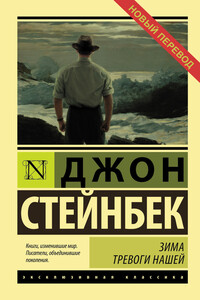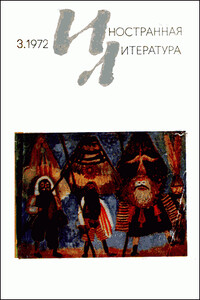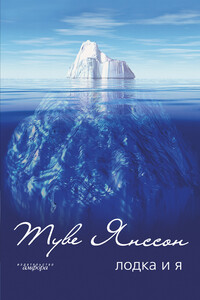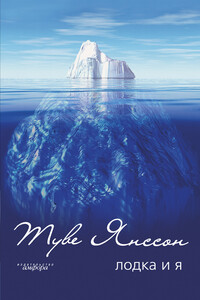Once there was a war | страница 12
The great troopship sneaks past the city and the tugs leave her, a dark thing steaming into the dark. On the decks and in the passages and in the bunks the thousands of men are collapsed in sleep. Only their faces show under the dim blue blackout lights—faces and an impression of tangled hands and feet and legs and equipment. Officers and military police stand guard over this great sleep, a sleep multiplied, the sleep of thousands. An odor rises from the men, the characteristic odor of an army. It is the smell of wool and the bitter smell of fatigue and the smell of gun oil and leather. Troops always have this odor. The men lie sprawled, some with their mouths open, but they do not snore. Perhaps they are too tired to snore, but their breathing is a pulsing, audible thing.
The tired blond adjutant haunts the deck like a ghost. He doesn’t know when he will ever sleep again. He and the provost marshal share responsibility for a smooth crossing, and both are serious and responsible men.
The sleeping men are missing something tremendous, as last things are usually missed. The clerks and farmers, salesmen, students, laborers, technicians, reporters, fishermen who have stopped being those things to become an army have been trained from their induction for this moment. This is the beginning of the real thing for which they have practiced. Their country, which they have become soldiers to defend, is slipping away into the misty night and they are asleep. The place which will fill their thoughts in the months to come is gone and they did not see it go. They were asleep. They will not see it again for a long time, and some of them will never see it again. This was the time of emotion, the moment that cannot be replaced, but they were too tired. They sleep like children who really tried to stay awake to see Santa Claus and couldn’t make it. They will remember this time, but it will never really have happened to them.
The night begins to come in over the sea. It is overcast and a light rain begins to fall. It is good sailing weather because a submarine could not see us 200 yards away. The ship is a gray, misty shape, slipping through a gray mist and melting into it. Overhead a Navy blimp watches over her, sometimes coming in so close that you can see the men in the little underslung cabin.
The troopship is cut off now. She can hear but cannot speak. Her outgoing radio will not be used at all unless she is hit or attacked. For the time of her voyage no one will hear of her. Submarines are in the misty sea ahead, and of the men on board very many have never seen the ocean before and the sea itself is dark and terrifying enough without the lurking things, and there are other matters besides the future fighting that frighten a local boy—new things, new people, new languages.






